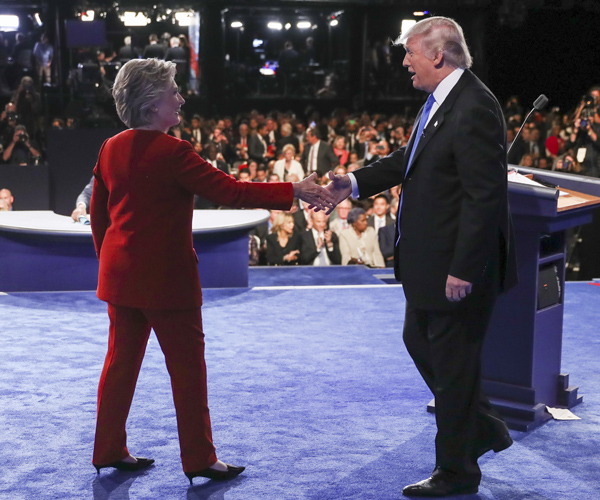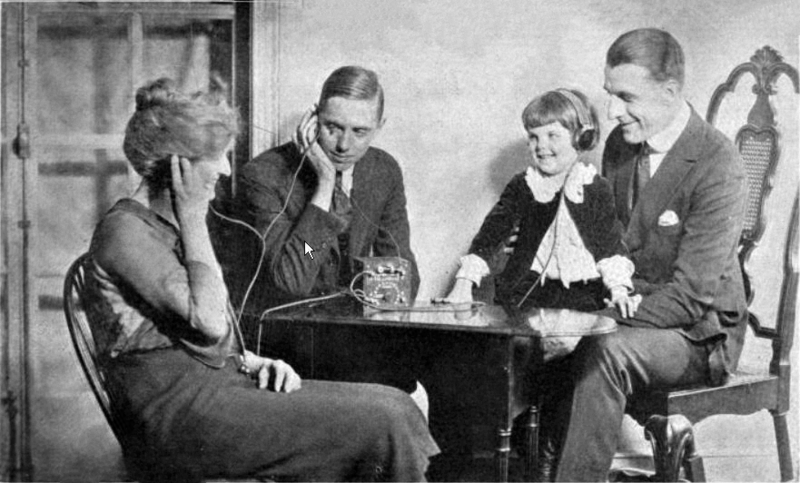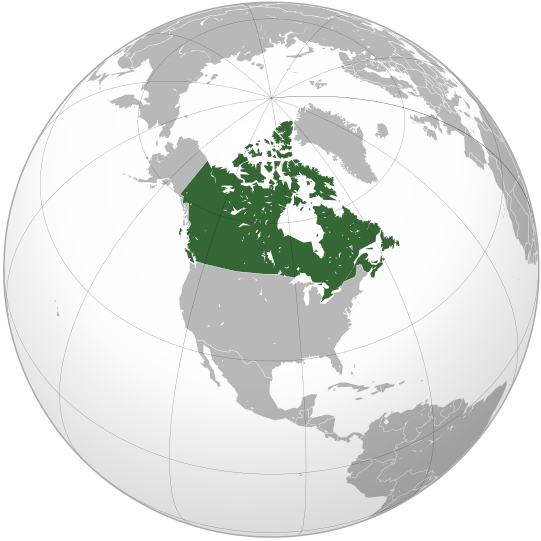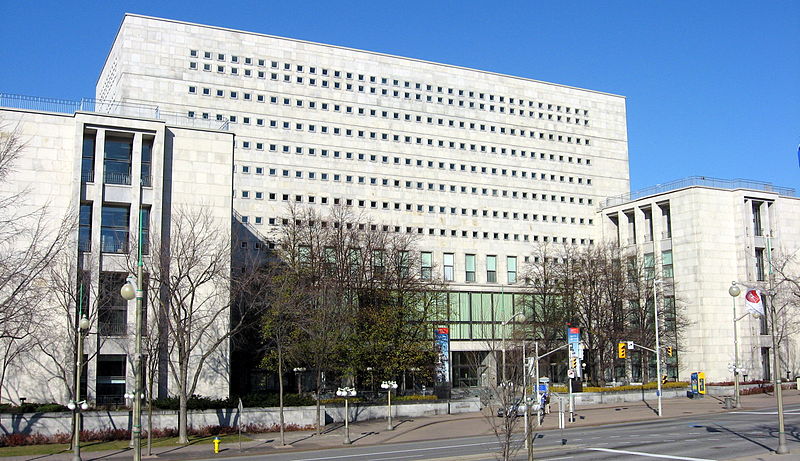Landschlacht, Switzerland, 30 September 2016
We live in an age where it is difficult to know who or what to believe.
We are bombarded by information, yet one can never feel certain whether that information is unbiased, objective or complete.
We know more information than we need to about things that have little to do with our actual lives, while simultaneously we wonder whether we are being properly informed about things that do affect us.
We are told to give importance to people and issues that might not merit this impression, while other people and issues are marginalised that deserve far greater respect and attention than they receive.
The true masters of the western world are not its politicians.
The true masters of the western world are media owners, who control what we think through the choice of information we receive and how it is interpreted.
And as most of us are unable or unwilling to be in the arenas where decisions about our lives are made without our consent, so we blindly believe whatever message seems to coincide conveniently with our values.
And this is where we find ourselves this week.
The first of the great debates between the two American presidential candidates, Republican Donald Trump and Democrat Hillary Clinton, took place Monday night at 2100 EST (0300 in Switzerland).

Though the US election does interest me very much, as America, for better or worse, does wield enormous influence in the world, I elected to remain in my bed, for a number of thoughts came to mind when considering this event…
My opinion, perhaps shared by others and viewed by a few, doesn´t seem to matter to those Americans who will actually go out and cast their votes.
For, from my perspective, many Americans don´t really care much about how they are perceived by the rest of the world, as long it is America that remains dominant.

As much as the debates are supposed to be the key factor is resolving who will become the next President of the United States, it feels like there are very few Americans who haven´t already made up their minds as to which individual is more appropriate to govern their country.
No matter how often Mr. Trump or Mrs. Clinton are caught in mistruths or mired in scandals, no matter what either candidate says or does, most Americans remain loyal to their preferred choice.
Of course, as an observer of all this hullabaloo, I have formed my own opinions of whom should lead America in the years to come, but it would be naive of me to forget that my opinions have been formed based on what information I have received from the media.

Following advice from a former political science teacher, I try to read and watch the news and opinions from both extremes of the political spectrum, but neither side seems able to offer fair, accurate, balanced, unbiased, objective reporting.
And I feel I must question exactly what reporting actually means in these modern times of ours.
I remember in my days of walking the length of Canada how my attempts were being reported.

I told and retold the same story again and again and again, yet each and every newspaper had its own spin on the story.
I had headlines like: “Hungry, broke, but still trekking”, “Cross Canada walker may find wife, write book”, “Young man is walking across Canada in search of love”, and my personal favourite – “A Canadian version of Indiana Jones”!
I was mostly publicity shy and tended to speak only with small town newspapers, for I found that the bigger the city the less interested they were in my story.
As I have never been an expert in self-promotion, it simply didn´t matter to me whether many people knew what I was doing.
It was a selfish act, funded mostly by working where I could, not raising money for any particular cause, neither seeking fame or fortune, but rather I wanted to see for myself my own country in the best sensory way I knew how – walking.
I never did reach the furthest extremes of Canada, but it didn´t matter if I did, for walking was therapy and discovery of both place and self.

I did walk over 3,000 miles, but much remains undocumented and thus unprovable, but as I am not seeking any benefit in future based on this accomplishment I am contented with my own recollections of the experience.
I recount this experience today only to show how the media can shape the perception of a story and that perception is what forms our opinions and the factors in our decisions.
I recall another moment when I bravely approached the weekly newspaper, The Hill Times, which mostly reports on the events on Parliament Hill in Ottawa, hawking an article on the National Archives of Canada and the Library of Parliament and how insecure their security actually was in regards to securing their collections from theft.

What surprised me was how little investigative reporting there actually was and how dependent the paper was on press releases sent from the various government departments.
It seemed there were few reporters who would spontaneously follow their curiosity and chase a story, instead of simply expanding upon a press release.
And from everything I have seen since then, I wonder if anything has changed in this respect.
Today´s press seems either too afraid or simply too lazy to do much beyond spitting out pre-approved versions of information that has been spoonfed to them from other sources.
As important as the information we receive is, there is also significance to the information we are denied.
For not only does the media form our opinions by what and how they present the news to the public, but by not giving the public the complete story, or not allowing us the opposing viewpoint, or simply ignoring a story for various reasons, the media shapes our viewpoints in the same way a horse´s blinders obscures its total perspective.
Even Facebook censors.

What follows is my opinion I wrote about Monday night´s debate.
Despite a number of attempts to publicly post this opinion, Facebook, for its own reasons, never allowed the public to read it:
|
27 September 2016
I hate myself for thinking it, but I wonder what difference, if any, last night´s debate between Hillary Clinton and Donald Trump actually made in the opinions of most Americans.
From the sounds of all the clamour coming out of the States there seems to be few quiet Americans who are undecided about who they favour.
I didn´t lose sleep.
(It was 3 am here when the Great Debate took place.)
This morning I learned that most folks felt Hillary beat Donald, but here is what astounds me…
27% of those polled believe that Donald beat Hillary.
Honestly, I wonder if there is anything that Donald can´t say that will change his supporters´ “minds”.
But to the casual observer, it seems that Hurricane Donald is as substantial a candidate as the stormy wind he produces.
The fear that does cause me to lose sleep is that the same voters who thought George W. Bush was a great idea will be the same ones who cause Donald “Duck!” Trump to become the next President.
If this does happen all I can say is “God bless America”, for no one else will.
|
Now why does this opinion bother the censors of Facebook so much that they refused to post it?
Is this opinion feared for some reason?
Why is differing opinion feared at all?
Governments will arrest people who broadcast a difference of opinion to these governments and their policies.
But I confess I have great trouble understanding this.
If a government truly represents its people then it should welcome the opinions of the people regardless of whether these opinions are favourable or not.
If favourable then the government knows it has pleased the people it represents.
If unfavourable then the government knows it needs to consider how to regain the people´s trust and confidence once again.
But it seems that many governments believe they should be feared by the people, rather than fearing the people themselves, the people they claim to represent, the people whose lives they are supposed to improve.
I do see the need for government, for the regulation of people is necessary to ensure that the requirements of a nation are being served.
But a nation is poorly served when dissenting voices are silenced or its people are kept in total or partial ignorance.
I do comprehend there are moments when revealing too much can truly be a question of national security, but there is a world of difference between the suppression of opinion and the concealment of military strategy.
We make decisions, large and small, based on what we know.
But do we really know enough?
If we are what we think and if what we think is what we know, then who are we and what are we becoming?
I wonder.

Above: René Descartes (“I think, therefore I am.”)
